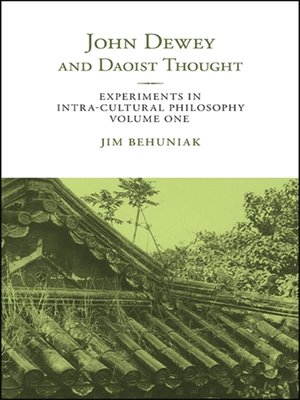John Dewey and Daoist Thought
ebook ∣ Experiments in Intra-cultural Philosophy, Volume One · SUNY Series in Chinese Philosophy and Culture
By Jim Behuniak, Jr.

Sign up to save your library
With an OverDrive account, you can save your favorite libraries for at-a-glance information about availability. Find out more about OverDrive accounts.
Find this title in Libby, the library reading app by OverDrive.



Search for a digital library with this title
Title found at these libraries:
| Library Name | Distance |
|---|---|
| Loading... |
Proposes an "intra-cultural philosophy" based on John Dewey's "cultural turn" and promotes Daoist thought as a resource that can help to reconstruct outmoded assumptions that continue to shape how we currently think.
In this timely and original work, Dewey's late-period "cultural turn" is recovered and "intra-cultural philosophy" proposed as its next logical step-a step beyond what is commonly known as comparative philosophy. The first of two volumes, John Dewey and Daoist Thought argues that early Chinese thought is poised to join forces with Dewey in meeting our most urgent cultural needs: namely, helping us to correct our outdated Greek-medieval assumptions, especially where these result in pre-Darwinian inferences about the world.
Relying on the latest research in both Chinese and American philosophies, Jim Behuniak establishes "specific philosophical relationships" between Dewey's ideas and early Daoist thought, suggesting how, together, they can assist us in getting our thinking "back in gear" with the world as it is currently known through the biological, physical, and cognitive sciences. Topics covered include the organization of organic form, teleology, cosmology, knowledge, the body, and technolog-thus engaging Dewey with themes generally associated with Daoist thought. Volume one works to establish "Chinese natural philosophy" as an empirical framework in which to consider cultural-level phenomena in volume two.







